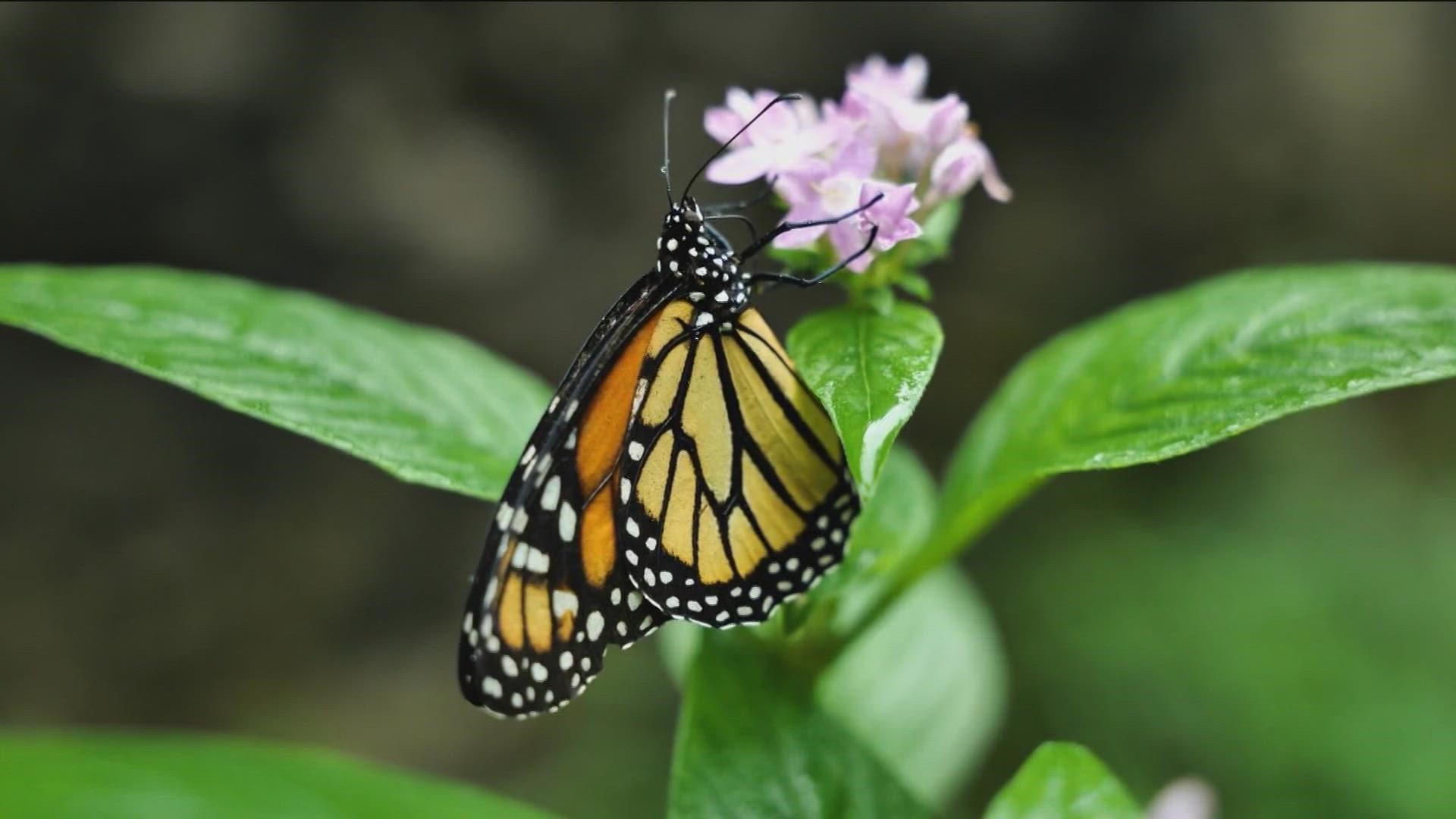FALCON HEIGHTS, Minn. — The International Monarch Monitoring Blitz is now underway.
This trinational data collection effort invites people across Canada, Mexico and the U.S. to simultaneously examine milkweed plants for monarch eggs, caterpillars, chrysalises and butterflies, and share their observations over a 10-day period.
According to the Commission for Environmental Cooperation, the Montreal-based organization hosting the sixth annual blitz, information collected helps researchers "better understand the monarch butterfly’s breeding productivity, range, and timing in North America."
For Minnesotans Dana Boyle and Ann Hobbie, this is nothing new. They're the current and former board chairs, respectively, of Monarch Joint Venture, a national group with headquarters in St. Paul. They also volunteer for the Monarch Larva Monitoring Project.
Every Thursday at 4 p.m., Boyle and Hobbie meet with about eight other volunteers at Falcon Heights Community Park to carefully turn over milkweed leaves for about 45 minutes, searching for monarchs in any of their five life stages. They log their findings on a clipboard before uploading the information to the Monarch Larva Monitoring Project's online portal.
"The Monarch Larva Monitoring Project monitors every week all over the country and in Canada, but the Blitz gets even more of the public involved because it's less of a commitment," Hobbie said.
This year's blitz started July 29, which came less than a week after the International Union for the Conservation of Nature added the migrating monarch butterfly to its “red list” of threatened species and categorized it as "endangered" for the first time.
"They're so important to us and they're so important to the ecosystem," said Hobbie, a former teacher who is not a professional scientist but has learned so much through volunteer work, she wrote a book called "Monarch Butterflies" to help educate others.
"The blitz is really going to tell us — it's a finger on the pulse," Hobbie continued. "It helps us understand whether drought it a factor or pesticides are a factor. It's just going to be an increasingly important body of data for scientists to look at and use."
The 10-day International Monarch Monitoring Blitz goes through Sunday, Aug. 7. Then, on Sunday, Aug. 21, the public is invited to watch dozens of monarchs as they feast on native plants on a farm in Foley during the Minnesota Monarch Migration Fair. The fair also includes hay rides, music and educational activities.

